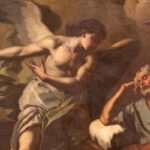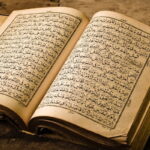We explain what a prophet is and the characteristics of the biblical prophets and the Quran. Also, the list of prophets of different religions.
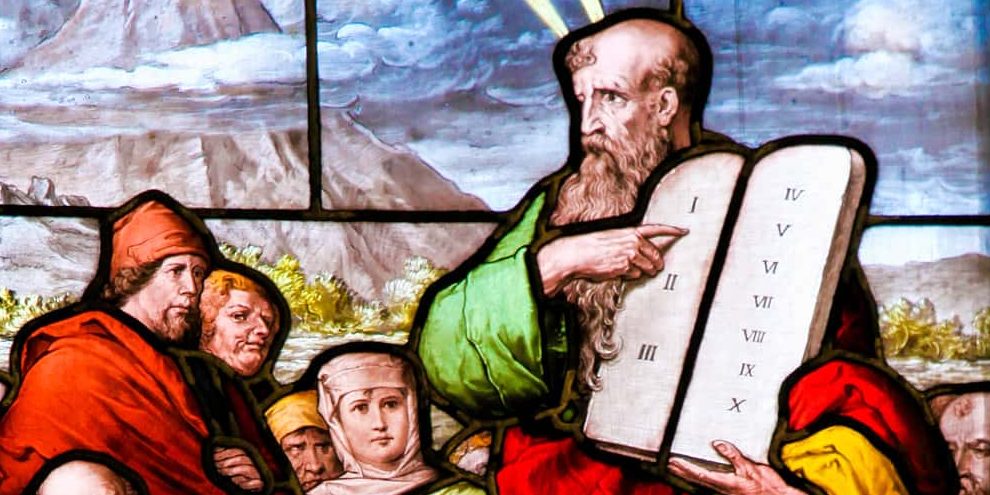
What is a prophet?
A prophet is a person who had a religious, mystical or supernatural revelation, and who preaches it as a truth of divine origin. It is a very frequent figure in the doctrine of the three great monotheistic religions: Judaism, Christianity and Islam.
Prophets are considered intermediaries between people and God and they are given the role of spiritual guides. Their importance and attributions may vary depending on each religious tradition, but, in general, they are characterized by preaching religious faith with the aim of changing the behaviors or beliefs of a community.
The best known prophets are Moses, Jesus and Muhammad considered the founders of Judaism, Christianity and Islam, respectively. Moses is a figure from the Old Testament whose real existence is under debate, since there are no other historical records that allow it to be corroborated. However, Jesus and Muhammad were historical figures that preached their prophetic truth, the first in the 1st century d. C and the second in the VI d. c.
The term prophet It is also used to refer to people who make prophecies, that is, predictions about the future. In this broader sense, a prophet can be seen as someone who offers unique insights or visions about events that have not yet happened, or about society, technology, or other aspects of human life.
Origin of the term prophet: The word prophet It has its origin in ancient Greek. It comes from the term prophetswhich in turn is made up of two parts: prowhich means “before” or “in front,” and pheteswhich means “talker” or “the one who speaks.” Therefore, etymologically, a prophet is someone who speaks or predicts events before they occur.
Characteristics of a prophet
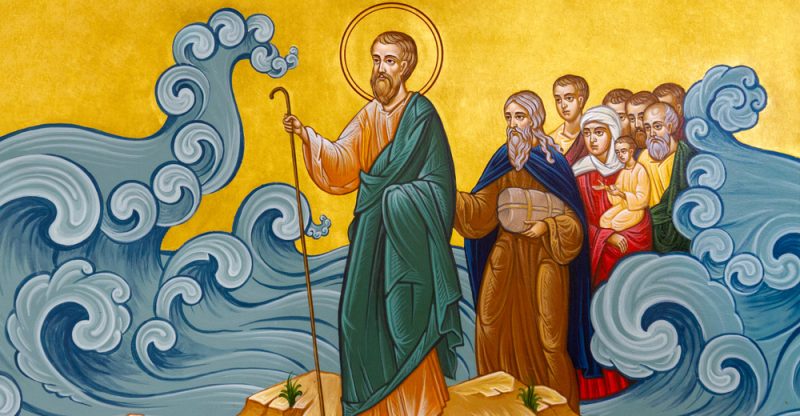
Among the main characteristics of the prophets, we can highlight:
- divine revelation. They are considered intermediaries between the divine and the human, because they receive messages, visions or revelations directly from a deity or supernatural force.
- Preaching . They preach the divine revelations and promote their faith through public speeches in community meetings.
- Moral and spiritual guide. By preaching religious faith, they give ethical and spiritual guidance, urging people to live in accordance with divine principles and to correct behavior they consider deviant.
- Future prediction. Many are known for predicting future events. Your prophecies may be about coming blessings, warnings of disasters, or important events in your community's history.
- Charisma and virtue. They are often seen as models of virtue, as they demonstrate a high degree of integrity, piety, and devotion in their personal lives.
- Messages of warning and hope. They often warn of the consequences of sin and disobedience to God, but they also offer hope and promises of redemption and salvation.
- Rejection and persecution. They often face rejection or persecution from their community, especially when their messages challenge established norms or customs.
- Miracles and signs. In many traditions, they perform miracles or show supernatural signs that validate their mission and authenticity as messengers of the divine.
The biblical prophets
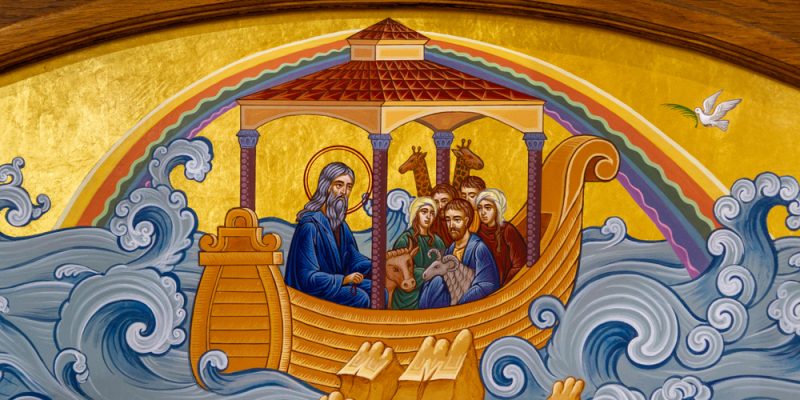
Biblical prophets are central figures in the Judeo-Christian religious tradition of the Hebrew Scriptures (Old Testament) and the New Testament. For Judaism and Christianity, they are people whom God chose to communicate his will, convey divine messages, warn about the future, and guide people in moral and spiritual matters.
The Holy Scriptures of this tradition comprise two large sets of texts and stories: the Old Testament or Tanakh and the New Testament.
Old Testament (Christianity) or Tanakh (Judaism)
These Scriptures contain the fundamental teachings for Jewish faith and tradition. Prophets occupy a central place, serving as intermediaries between God and the people, transmitting divine messages, offering moral and spiritual guidance, and predicting future events.
The most important prophet in these texts is Moses, who freed the Israelites from slavery and received God's teachings on Mount Sinai. Other fundamental figures in the biblical narrative for their teachings are Abraham, Noah, Jacob or Saul.
Furthermore, a distinction is usually made between:
- major prophets whose works are much more voluminous and include entire books in his name: Isaiah, Jeremiah, Ezekiel and Daniel (the latter is considered a major prophet in the Christian text, but in the Tanakh his book is part of the Writings, and not of the Prophets).
- minor prophets also known as the “Twelve Prophets”, a much shorter work, collected in the last part of the Old Testament. The book of twelve includes the teachings of Hosea, Joel, Amos, Obadiah, Jonah, Micah, Nahum, Habakkuk, Zephaniah, Haggai, Zechariah, and Malachi.
New Testament
The books that are part of the New Testament focus on the events of the life, teachings and crucifixion of Jesus of Nazareth, considered the last prophet of God by Christians and at the same time the son of God, sent to save humanity.
Another important New Testament prophet is John the Baptist, known for preaching repentance and baptizing in the Jordan River in preparation for the arrival of the Messiah.
The prophets in the Koran
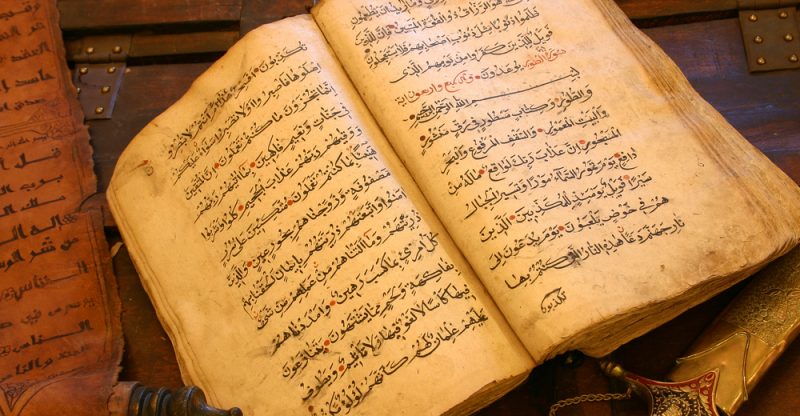
In Islam, prophets are revered and respected figures who received divine revelations from God (Allah) to guide humanity on the right path (al-Huda). The Quran, the holy book of Islam, mentions several prophets, but some are highlighted as the most important because of the depth of their messages and their influence on religious and spiritual history.
Islam shares with Judaism and Christianity the belief in the ancient prophets of the Tanakh, and even in the New Testament of Jesus of Nazareth. However, For Muslims, the last great prophet is Muhammad (Muhammad Ibn ʿabdullāh). The Quran emphasizes the oneness of God and the continuity of the prophetic message throughout history, showing how each prophet was sent to call humanity to monotheism and righteousness.
The text of the Quran, thus, is considered by Muslims to be the only true writing of the divine word, dictated by God to Muhammad and collected by his companions. To preserve this divine word unaltered, the Quran is recited in classical Arabic and its translations into other languages are considered interpretations of it.
The most important prophets
Below is a list with the most important prophets of each religion. In red, the name for the Judaism ; in blue, the name inside the Christianity ; in green, the name for the Islam.
| Name | Characteristics |
|---|---|
|
Adam |
First human being created by God. For Islam, he is the first prophet and the father of humanity, as well as a model of submission to the will of God. In Jewish and Christian traditions, his role as a prophet is not emphasized. |
|
Noah |
Prophet who warned his people about divine judgment and built the ark to save believers from the universal flood. Its story highlights the importance of obedience and faith in God, and is shared by all three religious traditions. |
|
Abraham |
Patriarch and prophet who submitted to the will of God and received several divine promises. In Judaism, he is considered the father of the Jewish people; in Christianity, a model of faith; in Islam, one of the main prophets and a model of submission to God. |
| Moshe Moses Muse |
Leader, lawgiver, and prophet who freed the Israelites from slavery in Egypt and received the Law on Mount Sinai. He is one of the most important prophets in the three religious traditions for his outstanding role in the liberation and guidance of the people of God. |
| David David Dawud |
King, prophet and poet known for his bravery, wisdom and leadership. In Judaism, he is considered one of the great kings of Israel; in Christianity, a model of repentance; in Islam, a just prophet and king. |
| John the Baptist yahya (Judaism does not consider him a prophet). |
Prophet who prepared the way for Jesus Christ, calling for repentance and baptism for the remission of sins. He is recognized as the last Old Testament prophet in Christianity and an important prophet in Islam, although his relevance varies between traditions. |
| Jesus Isa (Judaism does not consider him a prophet). |
Son of God and founder of Christianity, he preached the teachings about love, salvation and the Kingdom of God, performed miracles and rose from the dead. Islam considers him one of the great prophets, although he distances himself from the Christian conception of his divinity. |
| Muhammad (Judaism and Christianity do not consider him a prophet.) |
The last and most important of the prophets in the Islamic tradition, who received the final revelation from God in the form of the Quran. He is the perfect role model for Muslims. It is known as “the seal of the prophets” because it closes the prophetic tradition. |
How do prophets preach?
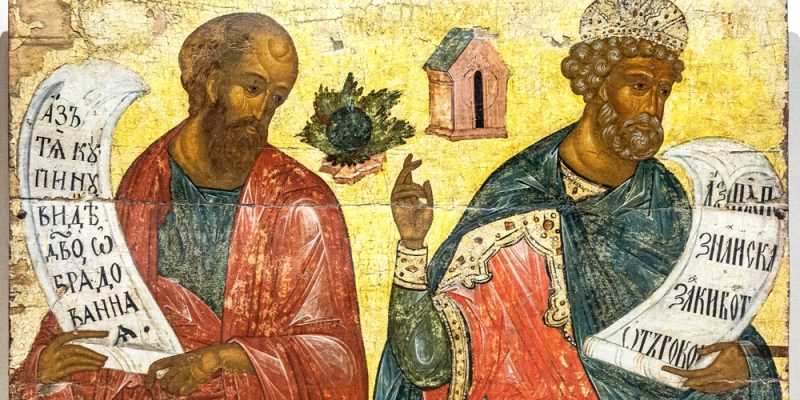
The preaching of the prophets covers different aspects, but in general their message focuses on calling people to the worship of one God, to obedience to his commandments and to righteousness in their actions. They use various methods to convey this message, including: direct teaching, proclaiming warnings, and example with their own lives.
Depending on the religious tradition, prophetic preaching can take different forms. However, certain common characteristics can be highlighted in the way of preaching of the prophets:
- Public speeches and sermons. Prophets often preach through public speeches, in which they communicate divine messages, moral teachings, and warnings. These speeches can occur in places of worship, plazas, or community gatherings.
- Written revelations. Many prophets write or dictate their revelations, which are then compiled into sacred texts. These writings may include laws, commandments, prophecies, and ethical teachings.
- Parables and metaphors. To illustrate their teachings and make them more accessible, prophets often use parables, metaphors, and stories. These symbolic stories help communicate spiritual and moral truths in an understandable and memorable way.
- Miracles and signs. It is common for prophets to perform miracles or show supernatural signs as a way to validate their mission and demonstrate divine power. These acts can capture people's attention and reinforce the prophet's message.
List of prophets of Judaism, Christianity and Islam
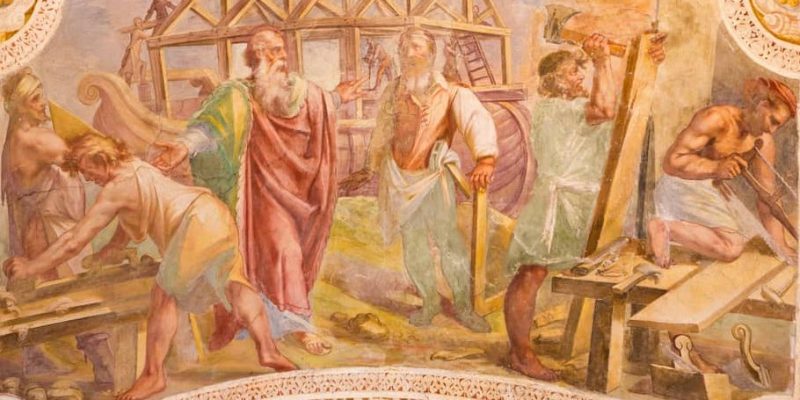
A list of the joint prophets of the world's great monotheistic religions (also called Abrahamic religions, since they share their faith in the prophet Abraham) would include the following names:
Prophets of the Old Testament or Tanakh
- Torah Prophets: Moses, Aaron, Miriam, Eldad and Medad, Pinchas.
- Prophets of the period of the kings of Israel: Joshua, Deborah, Samuel, Gad, Nathan, David, Solomon, Jeduthun, Ahijah, Elijah, Elisha, Shemaiah, Ido, Hanani, Jehu, Micaiah, Jaziel, Eliezer, Zechariah ben Yehudiah, Huldah.
- Major prophets: Isaiah, Jeremiah, Ezekiel, Daniel.
- Minor prophets: Hosea, Joel, Amos, Obadiah, Jonah, Micah, Nahum, Habakkuk, Zephaniah, Haggai, Zechariah, Malachi.
Prophets of the New Testament or Christianity
John the Baptist and Jesus of Nazareth.
Prophets of the Koran or Islam
- Fundamental prophets (Ulul Azmi or “Rasul magnets”): Noah (Nuh), Abraham (Ibrahim), Moses (Muse), Jesus of Nazareth (Isa), Muhammad (Muhammad).
- Other prophets of Islam: Adam, Idris, Hud, Saleh, Lut, Daniel, Ism'ail, Ishaq, Yaqub, Yusuf, Ayub, Shoaib, Harün, Dhul-Kifl, Dawood, Sulaiman, Ilyas, Alyassa, Samuel, Saijo, Zakariya, Yahya (John the Baptist).
References
- Ackermann, M. (2008). Prophets. Encyclopedia of World History, vol. YO: The Ancient World. Prehistoric Eras to 600 CE Facts on File.
- Ahlström, G.W. (2024). Prophecy. Encyclopedia Britannica. https://www.britannica.com/
- Ellwood, RR and Alles, GD (Eds.). (2007). Prophecy; Prophets, Biblical. The Encyclopedia of World Religions. Facts on File.

